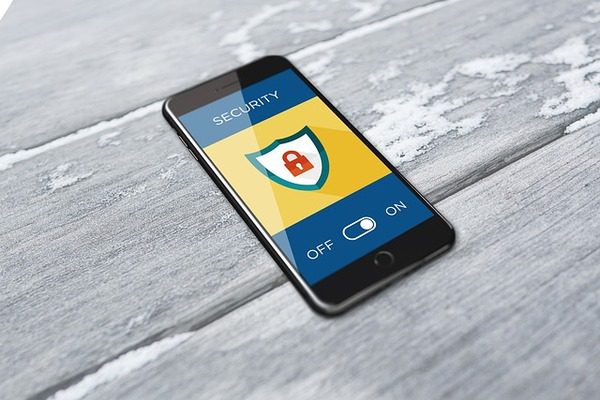In an age defined by constant connectivity and digital interactions, the question “Is my phone being tracked?” has become increasingly pertinent. The pervasive nature of smartphones has raised concerns about privacy and security. This leaves many individuals apprehensive about the potential surveillance someone subjected them to without their knowledge or consent.
In this informative guide, we will delve into the intricacies of phone tracking. Besides that, we will shed light on the various methods to monitor mobile devices and offer practical insights into how to safeguard your privacy by blocking such tracking attempts.
We will also discuss the ways to check if someone is tracking your phone and how to prevent it. At the end of this article, you will have enough knowledge to protect yourself from being tracked.



Can someone track my phone without me knowing?
Yes, someone may track your phone without you knowing it. There are various methods and technologies that can track a phone discreetly.
So, here are some of the methods people may use to track your phone without you knowing:
- Tracking apps: There are numerous tracking apps available, like parental control or device recovery. However, if someone gains access to your phone and installs such an app without your consent, they can track your location, messages, and other activities. These apps often run in the background, making them difficult to detect.
- GPS technology: If an attacker gains access to your device or knows your login credentials for associated accounts, they can remotely activate GPS tracking to monitor your movements.
- Exploiting vulnerabilities: Cybercriminals can exploit security vulnerabilities in your phone’s operating system. Once inside, they can track your phone’s information.
- Cellular network triangulation: Even without GPS access, it’s possible to estimate a phone’s location through cellular network triangulation. By analyzing the signals between your phone and nearby cell towers, someone could determine your approximate location.
- Stingrays/IMSI Catchers: Law enforcement and malicious actors alike have used devices known as Stingrays or IMSI catchers to intercept and track mobile phone signals. These devices mimic legitimate cell towers, forcing nearby phones to connect to them, thereby revealing the phone’s location and other data.
- Spyware and Malware: Phishing emails, malicious downloads, or compromised websites can unknowingly install malicious software or spyware on your device. Once installed, these programs can collect information, including your location, without your knowledge.
- Social Engineering: Attackers may employ social engineering tactics to trick you into granting them access to your phone. They might pose as tech support personnel and persuade you to provide them with remote access.
How to protect your phone from being tracked?
Safeguarding your phone against unauthorized tracking is a paramount concern. In order to fortify your device’s defenses and preserve your privacy, it’s imperative to adopt stringent security practices:
- Regular updates: Consistently update both your device’s operating system and installed applications. These updates not only introduce new features but, critically, they contain vital security patches.
- Strong, unique passwords: Bolster your phone’s security with robust, distinct passwords for all accounts. By doing so, you create a formidable barrier against unauthorized access.
- Prudent app downloads: Exercise discretion when downloading apps, especially those from unverified sources. Stick to reputable app stores like Google Play Store and Apple’s App Store. These platforms employ stringent screening processes to minimize the risk of malicious software infiltrating your device.
- Permissions oversight: Actively monitor your phone’s app permissions. Scrutinize which apps have access to sensitive data, such as your location or contacts. Promptly revoke permissions for applications that don’t legitimately require such access. This reduces the exposure of your data and minimizes the potential for tracking.
- Privacy setting customization: Harness your phone’s privacy settings to curtail location sharing with apps and services. Selectively grant access to your precise location, and consider configuring location permissions to “While Using” (iOS) or “Only while the app is in use” (Android) for apps that don’t necessitate constant tracking.
How to know if someone is tracking my phone?



To determine if someone is tracking your phone, you can look for various signs and employ different methods to identify potential tracking activities.
Use FlashGet Kids parental controls to block those hackers!
So, here’s a step-by-step guide on how to know if someone is tracking your phone:
✔️Check battery usage: Unusual and rapid battery drain can be an indicator of tracking software running in the background. Check your battery usage statistics in your phone’s settings to identify any apps consuming excessive power.
✔️Review data usage: Tracking apps often use data to transmit information to the person tracking your phone. Monitor your data usage to detect unexpected spikes or unusual data consumption.
✔️Examine installed apps: Regularly review the list of installed apps on your phone. Look for any unfamiliar or suspicious applications that you didn’t install yourself.
✔️Check app permissions: Review the permissions granted to each app on your device. Ensure that apps only have access to the information they genuinely require. Suspicious apps may request unnecessary permissions.
✔️Look for unusual behavior: Be vigilant for any unusual behavior on your phone, such as unexpected pop-up notifications or advertisements, unusual lag, or slow performance. Other factors include unexplained outgoing calls or text messages.
How to find out if my phone is being tracked?



To determine whether your phone is being tracked, you can employ various methods and techniques.
- Perform a security audit: Keep your phone’s operating system, security software, and apps up to date. This helps patch known vulnerabilities that tracking software might exploit.
- Use anti-malware and anti-spyware apps: Install reputable anti-malware and anti-spyware apps on your device. Scan your phone periodically to check for doubtful software.
- Check for strange network connections: Examine the list of connected devices on your home Wi-Fi network. And if you see unfamiliar devices connected, someone might be intercepting your data.
- Scan for unknown or hidden apps: Use security apps that can scan your device for unknown or hidden apps that may be tracking you.
- Consider unwanted physical access: If you suspect someone with physical access to your phone is tracking you, check for signs of tampering or unauthorized installations. Change your mobile phone’s password for the future.
- Contact your mobile service provider: Reach out to your mobile service provider and inquire about any unusual activities on your account, such as unauthorized location tracking services.
- Factory reset your phone (as a last resort): If you are unable to identify or remove tracking software, consider performing a factory reset on your device. If you see positive changes in your phone’s performance after a factory reset, your phone was probably being tracked in some way.
How to block my phone from being tracked?



Blocking your phone from being tracked involves taking several security measures. Let’s discuss some of them below:
- Update your operating system and apps: Regularly update your phone’s operating system and applications to improve security patches.
- Review app permissions: Go through your installed apps and remove unnecessary permissions.
- Use a Virtual Private Network (VPN): Use a VPN to mask your device’s IP address and encrypt your internet traffic, making it more challenging for trackers to monitor your online activities.
- Install anti-tracking apps: Consider using anti-tracking apps and other apps with features like ad-blocking, tracker blocking, and enhanced privacy settings.
- Turn off location services: Disable location services when you don’t need them. Be cautious about which apps you grant location access to.
- Use encrypted messaging apps: Secure messaging apps like WhatsApp offer end-to-end encryption, making it difficult for anyone to intercept your messages or track your conversations.
- Regularly clear your browsing data: Clear your browser history, cookies, and cached data regularly to prevent websites from tracking your online behavior.
- Disable Bluetooth and Wi-Fi when not in use: Turn off Bluetooth and Wi-Fi when you’re not actively using them.
- Consider using a feature phone or offline mode: If you need to maintain extreme privacy, consider using a basic feature phone or activating airplane mode.
- Use a privacy-focused search engine: Consider using privacy-focused search engines, like Google Chrome Incognito.
- Be cautious with public Wi-Fi: Avoid connecting to unsecured public Wi-Fi networks, as they can be a hotspot for tracking attempts. Use a VPN to encrypt your traffic.
- Educate yourself about phishing: Be cautious about phishing attempts, as they can lead to the installation of tracking software.
- Enable Find My Phone (for Recovery): Consider enabling tracking features such as Find My Phone to locate your device if someone steals or you lose it.
How to block my phone from being tracked on iPhone & Android?



Blocking your phone from being tracked on both iPhone and Android involves a combination of privacy settings and security practices. Here are steps specific to each platform:
⏩ For iPhone users:
- Disable location services: Go to Settings > Privacy > Location Services and turn off location access for apps that don’t need it.
- Check your app permissions: Keep checking the app permissions and remove the ones that you don’t need.
- Enable Find My iPhone: Activate this feature to locate your device if it’s lost or stolen.
⏩ For Android users:
- Manage app permissions: In Settings, go to Apps & Notifications > App Permissions to control which apps have access to your location, camera, and other sensitive data.
- Use a VPN: A Virtual Private Network can hide or change your location and data.
- Install anti-tracking apps: Explore apps designed to detect and prevent tracking on Android devices.
How to protect your kids from being tracked by someone?
As parents in the modern age, ensuring the safety and privacy of our children is of paramount importance. With the ever-present threat of online tracking and potential dangers, it’s crucial to employ effective tools to prevent someone from tracking your kids with malicious intent. Therefore, one such tool that can aid parents in this endeavor is FlashGet Kids.



Here are the salient features of ? FlashGet Kids:
App and website monitoring: This helps identify potentially unsafe platforms or content that could expose them to tracking attempts.
Geofencing: The geofencing feature enables parents to set up virtual boundaries for their children. So, if a child leaves or enters these predefined areas, parents receive real-time alerts.
Location tracking: GPS tracking of FlashGet Kids functionality allows parents to check their child’s real-time location at any time. This can be invaluable for ensuring their safety and knowing their whereabouts.
Call and text monitoring: Parents can monitor their child’s calls and text messages, ensuring they are not receiving unsolicited or suspicious communications that could lead to tracking attempts.
App blocker: FlashGet Kids enables parents to block access to specific apps that may pose privacy and security risks. This can include apps that collect excessive data or have inadequate privacy protections.
Time management: Parents can set time limits for device usage to prevent excessive screen time and minimize the risk of exposure to potential trackers.
Emergency alerts: FlashGet Kids allows children to send emergency alerts to their parents with just a few taps, thus providing a quick way to seek help if they feel threatened or uncomfortable.
Remote control: Parents can manage and monitor their children’s devices remotely, ensuring their safety even when they’re not physically present.
FAQs
If my phone is off, can my location be tracked?
No, if your phone is completely powered off, it should not be traceable. However, in some cases, advanced tracking methods may still pose a potential risk.
Can someone track my phone by texting me?
Generally, tracking a phone via text message alone is not possible. Tracking typically requires the installation of tracking software or apps on the target device.
What is the code to check if your phone is being monitored?
There isn’t a universal code to check if your phone is being monitored. If you suspect surveillance, it’s best to follow the steps mentioned in this guide to determine if someone is tracking your phone.
Does *#21 tell you if your phone is tapped?
No, entering *#21 into your phone’s dialer typically allows you to check the status of call forwarding. It does not provide information about whether your phone is tapped or being tracked.
What is *#62 used for?
*#62 is used to check the call forwarding status for unanswered or unavailable calls on your phone. It does not relate to tracking or monitoring.

